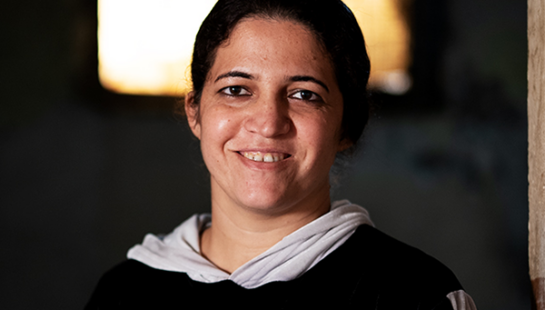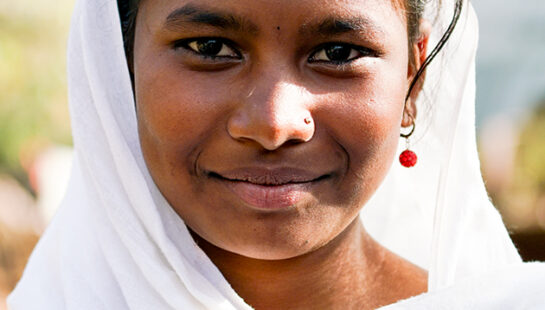What’s Happening In India?
While India’s COVID crisis has begun a downward trajectory, the cases are still tragically high. The country’s daily COVID-19 cases remain close to 300,000 with a daily death rate above 4,000.
As of Tuesday 18 May, the country’s total case load was at 25.23 million, while the death toll was 278,719. India is the only country other than the U.S. to pass the 25 million case milestone.
Oxygen is still India’s biggest need and one media report showed COVID-infected villagers lying in cots under trees in the hope of breathing a higher concentration of oxygen.
Baptist World Aid is working closely with its Indian partners and, in the case of Asia Pacific Baptist Aid (APBAid), will provide both medical and non-medical needs. The non-medical support will address psychosocial needs and such things as funeral and burial costs and access to transport service to the hospitals.
‘It was clear that emotional trauma was high and had to be addressed,’ said Roshan Mendis, Director of APBAid regarding the psychosocial support.
‘The feelings of hopelessness, fear, anxiety and even depression are phenomenally high. The emotional stress of frontliners, pastoral staff and caregivers is at levels that can be quite unhealthy for emotional and mental wellbeing,’ he said.
Baptist World Aid is also providing urgent assistance to five Christian hospitals: three in Uttar Pradesh and two in Assam, in India’s North and Northeast respectively. That support will include PPEs, medical equipment, oxygen concentrators and medicine.
What’s Happening In The South Asia Region?
The spread of the virus into India’s neighbouring countries of Nepal, Bangladesh and Sri Lanka has caused great concern globally and Baptist World Aid’s India COVID Emergency Appeal will now be utilised to support the South Asia region.
As with India, it is presumed that the actual COVID infection rate is much higher than the official reported number due to lack of testing particularly in rural areas.
NEPAL
Nepal has seen a dramatic rise in cases (1200 per cent since mid-April) and now sees more than 8,000 new cases per day, surpassing India in cases per head of population. The case positivity rate is now consistently at 50 percent, placing Nepal at the highest infectious rate anywhere in the world.
‘The capital city, Kathmandu, is still the biggest hot spot in Nepal, given how many people live there and pass through it,’ said one of Baptist World Aid’s partners in Nepal. ‘Also, India and Nepal have an open border. The long belt of open border and the districts around the open entry points were the highest risk points and the initial hot spots for the infection spread. It is spreading throughout the country now in alarming speed.’
Nepal’s Ministry of Health has warned that this level of infection is beyond the capacity of Nepal’s public health system. Nepal’s hospitals are seeing a shortage across the board in hospital beds, doctors, and oxygen, which are coupled with the country’s low vaccination rate. Nepal relied on India for medical supplies and doses of AstraZeneca vaccine but suspended its vaccination program when India ceased the export of vaccines due to their own COVID crisis.
‘Nepal is facing desperate shortages of oxygen, ventilators, ICU beds and other critical services. Hospitals are overflowing and over full in their bed capacity and struggling with adequate oxygen supply. This is the primary need. The Government of Nepal is putting constant effort to control it at the community level,’ Baptist World Aid’s partner said.
Baptist World Aid is working with our partners in Nepal to determine how we can provide the best support and considering how to support their hospitals in COVID preparedness and response through isolation wards, medicines and medical supplies, and testing.
Additionally, we will support our Christian partners there as they provide community members and staff with essential food, PPE and emergency transport services.
‘Often we feel down, exhausted and confused at times when we hear so many sad news, friends and family who are sick or dying,’ Baptist World Aid’s partner said.
‘We are surrounded with bad news and crisis. But our work has to go on, we cannot stop the work of reaching out and giving help. In this pandemic there are many needs, one of them is hope. We draw strength from each other, and we press on with our response work and pray for solutions to this crisis and healing around the world.’
BANGLADESH
The situation in Bangladesh is also alarming. The government has imposed a nationwide lockdown; however, this has had a negative impact on the livelihoods of the general public, especially on people already struggling in poverty.
This population is being placed further on the margins and forcing many into extreme poverty. The pandemic has pushed as many as 24.5 million people, termed the ‘new poor’ into poverty in the past year due to job losses resulting from COVID-19.
Baptist World Aid is in continual contact with our Bangladesh office and partners. At this stage, we continue to monitor how best to support the Rohingya and Host communities through two Christian partners there.
In addition, all Baptist World Aid-supported partners and community development projects in Bangladesh have incorporated specific COVID-19 response activities to support the communities they work with.
‘In rural areas, sanitation is a daily battle,’ said Nathan Sarker, Baptist World Aid’s South Asia Regional Lead. ‘Baptist World Aid partners in Bangladesh have been responding by conducting COVID-19 awareness sessions and distributing hygiene kits which include cleaning products and personal hygiene items for use by both children and their family members.
‘With Baptist World Aid support, the partners have placed handwashing stations in congested areas such as group meeting places and markets as a COVID-19 preventive measure,’ he said.
SRI LANKA
Like other neighbouring countries, Sri Lanka has also seen a rapid surge in cases since mid-April and is now seeing an average of more than 2,500 cases per day. All international inbound flights to Sri Lanka have been suspended until midnight 31 May in an effort to curb the spread of infection, and Baptist World Aid continues to consider opportunities to provide assistance throughout the region.
As India’s COVID emergency spreads to neighbouring countries, you can provide life-saving support to a region in crisis. Give to the Disaster Action Fund today.



 Mike Bartlett
Mike Bartlett

 Baptist World Aid
Baptist World Aid